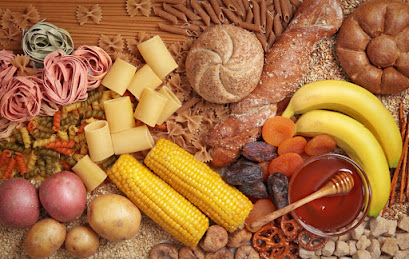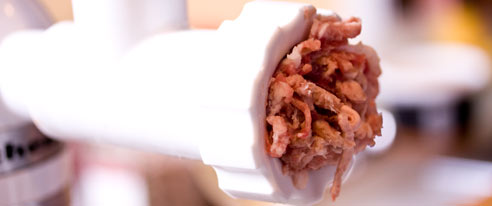CARBOHYDRATES
Carbohydrates
·
Macronutrient
·
Major
source of Energy
·
45%
- 80% of total caloric intake
·
Inexpensive
source of energy than fats and proteins
·
Present
in foods in forms – sugar, starches and fibres.
Classification of Carbohydrates
·
Classified
on the basis of the number of sugar units present.
·
Also
classified as:
v Available
carbohydrates- Which can be digested and gives energy when oxidised in the body
v Unavailable
carbohydrates – Which cannot be digested because human body doesn’t have
enzymes for their breakdown. No energy but works in elimination of faecal
waste.
Sources of Carbohydrates
·
Cereals
– Wheat, rice, jowar, bajra, oats, barley, corn, etc.
·
Pulses
– All whole grains and dehusked pulses and their by-products. E.g. Rajma,
besan, bengal gram, etc.
·
Fruits
and vegetables – Mango, chikoo, jack fruit, banana, beans, potato, yam,
colocasia, etc.
·
Nuts
and oilseeds – Cashewnuts, coconut, groundnuts, etc
·
Miscellaneous
– Sugar, jaggery, honey, sago, tapioca, dates, raisins, milk powder
Functions of Carbohydrates
·
Chief
function – to provide energy to carry out day-to-day work and maintain body
temperature
·
4kcal/g
of energy (Cheapest source)
·
Glucose
– only form of energy used by Central Nervous system. When glucose level falls,
brain doesn’t receive energy
·
Spare
protein from being broken down for energy and are used for bodybuilding and
repair
·
Required
for complete oxidation of fat. In deficiency, fats are broken down to products
such as ketones resulting to condition called ketosis.
·
Can
be converted into non-essential amino acids, provided a source of nitrogen is
available.
·
Sugar
lactose helps in absorption of minerals calcium and phosphorus
·
Helps
certain bacteria to grow in intestine. This bacterial flora is capable of
synthesizing B-complex vitamins in gut.
·
Dietary
fibre - Important for increasing faecal mass by absorbing and holding water,
and eliminating faecal waste.
·
Fibre
helps in lowering blood cholesterol levels by binding bile acids and
cholesterol.
Deficiency of Carbohydrates
·
Uncommon
in India – as diets are cereal based
·
Daily
diet should not contain less than 100 g of Carbohydrate
·
Deficiency
leads to utilization of fat for energy.
Excess Carbohydrates
·
Excessive
consumption of sugars causes dental caries or tooth decay
·
Excessive
consumption depresses the appetite, provides hollow calories (malnutrition)
·
High
intake of sugar and refined carbohydrate increase blood triglyceride levels –
heart diseases
·
Converted
into fat and deposited in adipose tissue – obesity
·
Interferes
with absorption of mineral elements like iron and calcium
·
Leads
to causing cramps and bloating due to gas formation
Dietary Fibre
·
Refers
to naturally occurring material in plant foods, which is not digested
·
Fibre
means – roughage, bulk, and unavailable polysaccharides
·
No
energy to humans
·
Fibre
absorbs and holds water – increasing faecal bulk.
·
Acts
as laxative (preventing constipation)
·
Reduces
the triglyceride and cholesterol levels in blood.











Comments
Post a Comment